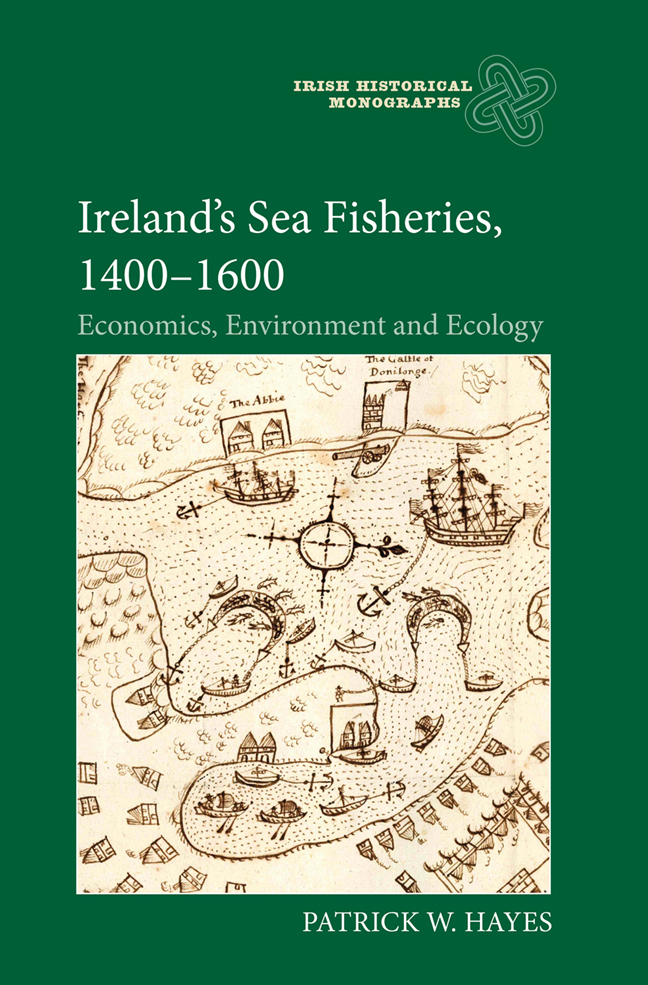Book contents
- Frontmatter
- Dedication
- Contents
- List of Illustrations
- Acknowledgements
- Abbreviations
- Glossary of Fish Species
- Introduction
- 1 The Development of Fisheries, 1400–1500
- 2 Diversity and Cooperation in Sixteenth-Century Fisheries
- 3 The Fish Trade
- 4 The Impact of War and Piracy
- 5 Fish Consumption and Provisioning
- 6 Oceanographic Variation and Environmental Change
- Conclusion
- Appendices
- Bibliography
- Index
- Miscellaneous Endmatter
4 - The Impact of War and Piracy
Published online by Cambridge University Press: 22 February 2024
- Frontmatter
- Dedication
- Contents
- List of Illustrations
- Acknowledgements
- Abbreviations
- Glossary of Fish Species
- Introduction
- 1 The Development of Fisheries, 1400–1500
- 2 Diversity and Cooperation in Sixteenth-Century Fisheries
- 3 The Fish Trade
- 4 The Impact of War and Piracy
- 5 Fish Consumption and Provisioning
- 6 Oceanographic Variation and Environmental Change
- Conclusion
- Appendices
- Bibliography
- Index
- Miscellaneous Endmatter
Summary
I wish that Ireland were a fishpool, for this age shall never see it settled in peace …
George Carew to Robert Cecil, 28 June 1602
(Cal. Car. MSS, 1601–03, p. 258)The Impact of War
In the late fifteenth century Ireland was a border region of English authority that saw a constant state of low-intensity conflict between and within the English and Gaelic Irish. Despite this, no large-scale wars occurred in Ireland during the fifteenth or early sixteenth centuries until the Kildare rebellion. One of the primary reasons was the tempering influence of the FitzGeralds, earls of Kildare from the 1460s onwards, who largely maintained stability by projecting their power into the Irish and English spheres of Irish politics. The earls of Kildare maintained a balance between the competing factions in Ireland, functioning as enforcers and mediators. For this reason, before the 1530s there was no substantial alteration in the ownership or rights to fishing resources. The control of coastlines and fisheries remained stable. This period of relative peace allowed fisheries to grow and prosper, fish to become Ireland's most important export commodity, and foreign fishing and trade to flourish.
However, from 1534 onwards, this situation changed. In June of that year, Thomas FitzGerald, later the 10th earl of Kildare, popularly known as Silken Thomas, entered into open rebellion against Henry VIII. His revolt marked the end of the Kildare ascendancy and sparked the Tudor ‘reconquest’, culminating with the English taking complete control of the island in 1603. That reconquest was not a cohesive military campaign but rather the slow breakdown of the relationship between the English government and Ireland's native inhabitants. The sixty-nine years from 1534 to 1603 witnessed successive conflicts and increasing violence on land and sea. These conflicts are important to the story of fisheries; they had a severely disruptive and damaging impact on the trajectory of the fishing industry in Ireland.
It is not necessary or possible to discuss every conflict in the sixteenth century within this chapter, but the most significant conflicts regarding their impact on fisheries will be explored, how fisheries factored into English colonial policy and how English attitudes towards the exploitation of natural resources changed over the course of the century.
The defeat of the rebellion of 1534 spelled disaster for the FitzGeralds of Kildare.
- Type
- Chapter
- Information
- Ireland's Sea Fisheries, 1400-1600Economics, Environment and Ecology, pp. 147 - 193Publisher: Boydell & BrewerPrint publication year: 2023

